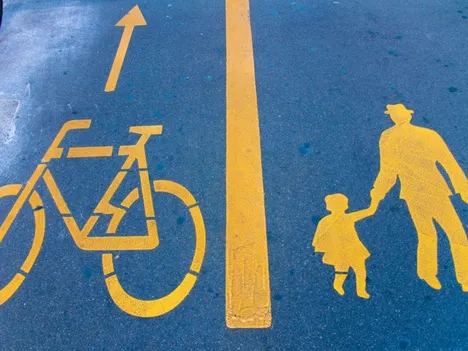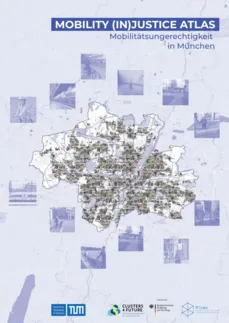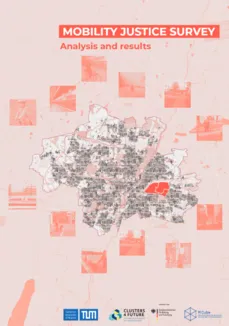
General description:
MGeM lays the foundation for a mobility system in which the entire population can participate in the future of mobility. The project addresses socially disadvantaged groups and neighborhoods where mobility disadvantages are present. Moreover, through surveys and in-depth qualitative interviews it aims at exploring mobility needs and justice perceptions of the most disadvantaged socio-economic groups.
Objectives:
-
Development of an interdisciplinary mixed-methods study that is unique in Germany on the living conditions, mobility behavior and needs of socio-economically weak groups.
-
Creation of a mobility injustice atlas to depict spatial disparities in Munich's urban planning area 3 (Berg am Laim, Perlach, Ostbahnhof, Neuperlach) taking into account the indicators of accessibility, basic needs, recreation and exercise spaces, quality of transport infrastructure and environmental pollution.
-
Creation of an experimental meeting space as a participation format on site in the study area in order to provide unique qualitative insights into the interplay between inequality and mobility culture through ethnographic accompaniment and focus group interviews.
Project results
Mobility (In)Justice Atlas
Where are mobility injustices in Munich? How can we visualize them? What are the critical areas? The Mobility (In)Justice Atlas aims to answer these questions to support policymakers, mobility advocates, and the general public understand how is the distribution of mobility resources and negative externalities among different social groups in Munich, Germany. In other words, the main goal of this Atlas is to identify and visualize mobility injustice in Munich, defined as areas where a high proportion of disadvantaged groups live in areas with fewer mobility resources or experience high negative effects of transport.
Mobility Justice Survey
What are the needs, experiences, and practices related to daily mobility for disadvantaged socio-economic groups? What is considered unjust in distributing mobility resources from the perspective of disadvantaged socio-economic groups? The main section of the analysis included in the report focuses on analysing the data based on the disadvantaged socio-economic groups. Based on these results, the following recommendations for practitioners have been made available to be considered for public transport infrastructure and service improvements, cycling and walking infrastructure improvements, and to make mobility fairer and more inclusive for all.
Contractor:
Federal Ministry of Education and Research, Future Cluster-Initative (Clusters4Future)
Duration:
November 2021 - October 2024
Contact:
Dr.-Ing. David Duran
david.duran@tum.de
+49 89 289 22510
Sindi Haxhija, M.Sc.
sindi.haxhija@tum.de

